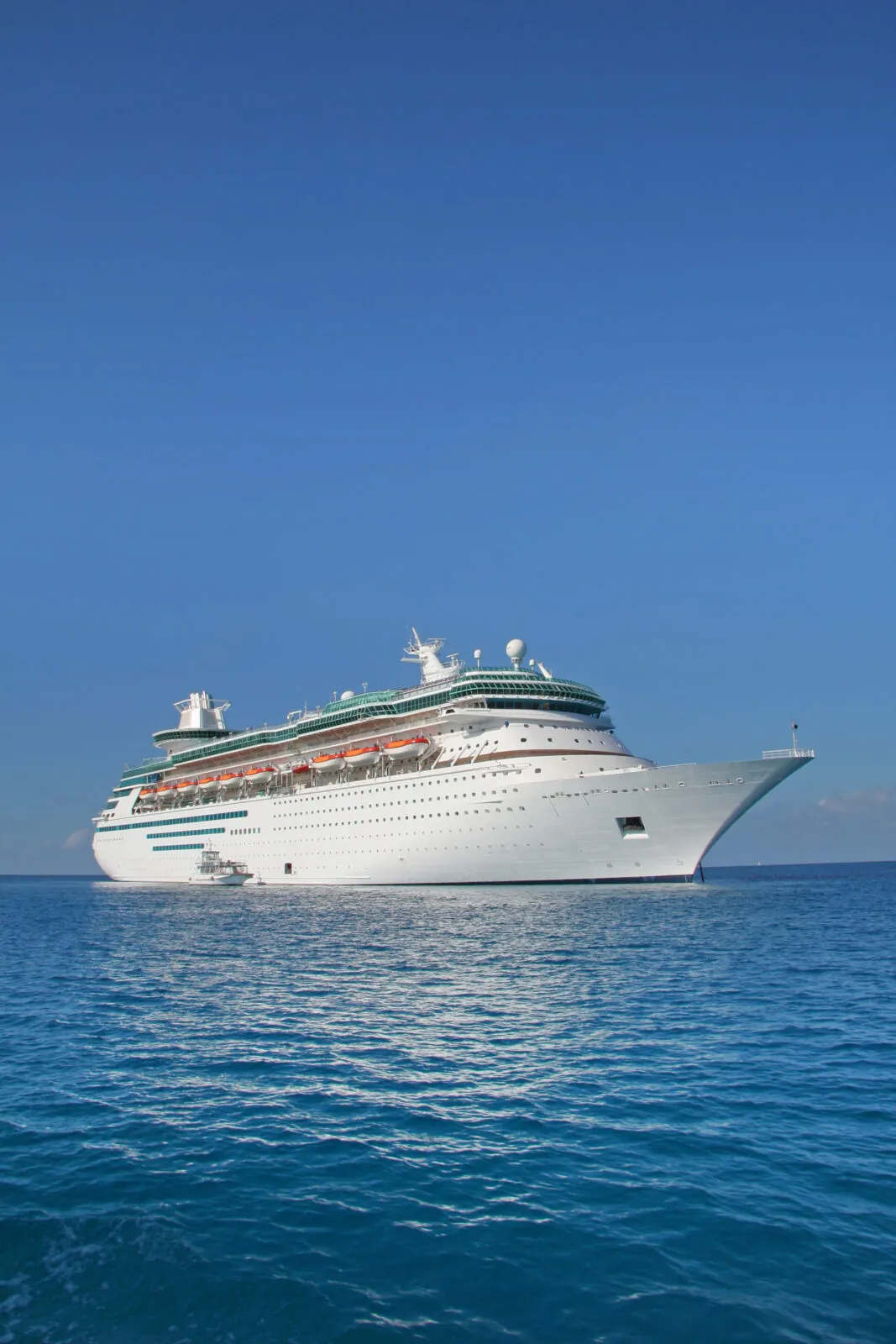A cruise vacation is an exciting way to travel, offering relaxation, luxury, and adventure. However, one important aspect to consider before setting sail is medical care. Many passengers wonder what happens if they get sick or injured at sea, whether there are doctors onboard, and how much medical treatment costs. Understanding how cruise ship medical facilities operate can help you prepare for potential health issues and ensure a safer, stress-free journey.
Cruise Ship Medical Facilities: Are There Hospitals Onboard?
Cruise Ships Do Not Have Full-Scale Hospitals
Unlike land-based resorts or hotels, cruise ships do not have fully equipped hospitals. Instead, they have medical centers that function as small urgent care clinics. These facilities are staffed by licensed medical professionals and are equipped to handle minor injuries and non-life-threatening conditions.
Medical Equipment and Services Available Onboard
Most cruise ship medical centers include:
- Examination rooms for general check-ups and minor injuries
- Basic laboratory testing for infections, blood sugar levels, and other diagnostics
- X-ray machines to assess fractures or internal injuries
- Defibrillators and cardiac monitoring equipment for heart-related emergencies
- IV fluids and medications for dehydration or food poisoning
- A limited supply of prescription and over-the-counter medications
While these medical centers can handle many common health issues, they are not equipped for major surgeries or complex medical conditions. Passengers with serious medical emergencies may need to be evacuated to a hospital on land.
Cruise Ship Medical Staff: Who Are the Doctors and Nurses Onboard?
Licensed Medical Professionals Work on Cruise Ships
Yes, cruise ships have licensed doctors and nurses, but the number and qualifications of onboard staff vary depending on the cruise line and ship size.
Qualifications of Cruise Ship Doctors
Cruise ship doctors are required to have:
- A valid medical degree and license in their home country
- At least three years of post-graduate clinical experience in emergency or general medicine
- Certification in advanced cardiac life support (ACLS) and trauma care
- Additional maritime medical training for handling illnesses and injuries at sea
Number of Medical Staff Onboard
The number of medical personnel on a ship depends on passenger capacity. Large cruise ships typically have at least one doctor and two nurses available at all times, while luxury and extended voyages may have additional specialists.
The medical center operates during set hours, but a doctor is always on call for emergencies. Passengers who need medical attention outside of regular hours can request an after-hours consultation, but this often incurs additional charges.
What Happens If You Get Sick on a Cruise?
Visiting the Medical Center
If a passenger becomes ill or injured while on a cruise, they can visit the ship’s medical center for evaluation and treatment. The doctor will assess symptoms, provide necessary care, and prescribe medications if required.
Common Medical Issues Treated Onboard
The most frequent medical conditions treated at sea include:
- Motion sickness – Doctors can provide motion sickness patches or injections
- Dehydration – Often caused by alcohol consumption, sun exposure, or stomach bugs
- Cold, flu, and respiratory infections – Antibiotics and symptom relief medication are available
- Food poisoning and gastrointestinal illnesses – Treated with fluids and anti-nausea medication
- Minor injuries – Cuts, burns, and sprains are treated with wound care and pain relief medication
Serious Health Issues and Evacuations
If a serious health issue arises, medical staff may recommend disembarking at the next port for treatment. In critical conditions, a medical evacuation may be required.
Medical Emergencies at Sea: How Are They Handled?
Emergency Medical Protocols
Cruise lines have strict emergency medical protocols in place to handle serious health incidents. If a passenger experiences a life-threatening condition such as a heart attack, stroke, or severe trauma, the onboard medical team will assess the situation, stabilize the patient, and determine whether an evacuation is necessary.
Medical Evacuation Procedures
Medical evacuations can be performed in two ways:
- Helicopter evacuation – If the ship is within range, a rescue team may airlift the patient to a hospital.
- Tender boat transport – If near a port, a small rescue boat may transport the patient ashore.
Evacuations Are Extremely Expensive
The cost of a medical evacuation can exceed $25,000. This is why having travel insurance that covers emergency transportation is crucial for all cruise passengers.
How Much Does Medical Care Cost on a Cruise?
Medical Care Is Not Free
Medical care on a cruise ship is not included in the price of the cruise. Cruise lines operate independent medical facilities, meaning passengers must pay out of pocket or use travel insurance for medical services.
Typical Costs of Medical Services Onboard
- Doctor’s consultation: $100 – $200
- Emergency visit (after hours): $150 – $300
- IV treatment for dehydration: $300 – $500
- X-rays: $100 – $500
- Lab tests: $50 – $200 per test
- Medical evacuation: $25,000+
Since most U.S. health insurance plans, including Medicare, do not cover medical expenses at sea, purchasing a travel insurance policy with comprehensive medical coverage is highly recommended.
Cruise Ship Pharmacy & Prescription Medications
Can You Bring Medications on a Cruise?
Passengers should bring enough prescription medication for their entire trip, including extra doses in case of unexpected delays. Medications should be stored in their original packaging with proper labels to avoid customs issues.
What If You Need a Prescription Refill?
Cruise ship pharmacies stock a limited selection of medications, including pain relievers, antibiotics, motion sickness treatments, and allergy medications. However, specialized prescriptions may not be available. If a passenger needs a prescription refill, they may have to wait until the ship reaches a port with a licensed pharmacy.
Does Travel Insurance Cover Medical Costs on Cruises?
Standard Health Insurance Does Not Cover Cruise Medical Costs
Most standard health insurance plans, including Medicare, do not cover medical expenses on cruise ships.
What to Look for in Travel Insurance
A good travel insurance policy should cover:
- Emergency medical treatment and hospitalization
- Medical evacuations and repatriation
- Trip cancellation for medical reasons
- Prescription drug coverage
Before purchasing a policy, check if pre-existing medical conditions are covered.
Frequently Asked Questions About Cruise Ship Medical Facilities
Do cruise ships have hospitals onboard?
No, cruise ships do not have full-service hospitals. They have medical centers that function as small urgent care clinics, staffed with licensed doctors and nurses. These facilities can handle minor illnesses and injuries but are not equipped for major surgeries or long-term care. In severe cases, patients may need to be evacuated to a hospital on land.
Are doctors and nurses available 24/7 on a cruise ship?
Yes, cruise ships have at least one doctor and two nurses available at all times. The medical center has set hours during the day, but a doctor is always on call for emergencies. If you need medical attention after hours, you can request an emergency consultation, but there may be additional fees.
What happens if I get sick on a cruise?
If you become ill, you can visit the ship’s medical center, where the onboard doctor will assess your symptoms, provide treatment, and prescribe medication if necessary. If your condition is serious, the medical staff may recommend disembarking at the next port for treatment at a local hospital or arranging a medical evacuation if needed.
What kinds of medical issues can be treated on a cruise ship?
Cruise ship medical centers are equipped to treat minor to moderate health issues, including colds, flu, respiratory infections, food poisoning, dehydration, motion sickness, minor cuts, burns, sprains, and some allergic reactions. They can also provide basic lab testing, X-rays, and cardiac monitoring.
How much does it cost to see a doctor on a cruise ship?
Medical consultations on cruise ships typically cost between $100 and $200. If you need emergency care outside of regular hours, the price may range from $150 to $300. Additional costs apply for treatments such as IV therapy, X-rays, lab tests, and medications. All medical services must be paid out of pocket unless covered by travel insurance.
Contact The Cruise Injury Law Firm Today
If you experience medical negligence or improper treatment on a cruise, contact The Cruise Injury Law Firm for a free consultation. They can assist with claims for medical malpractice, wrongful treatment, or cruise line negligence.
By being informed and prepared, you can enjoy your cruise with peace of mind, knowing that you’re ready for any medical situation that may arise.



